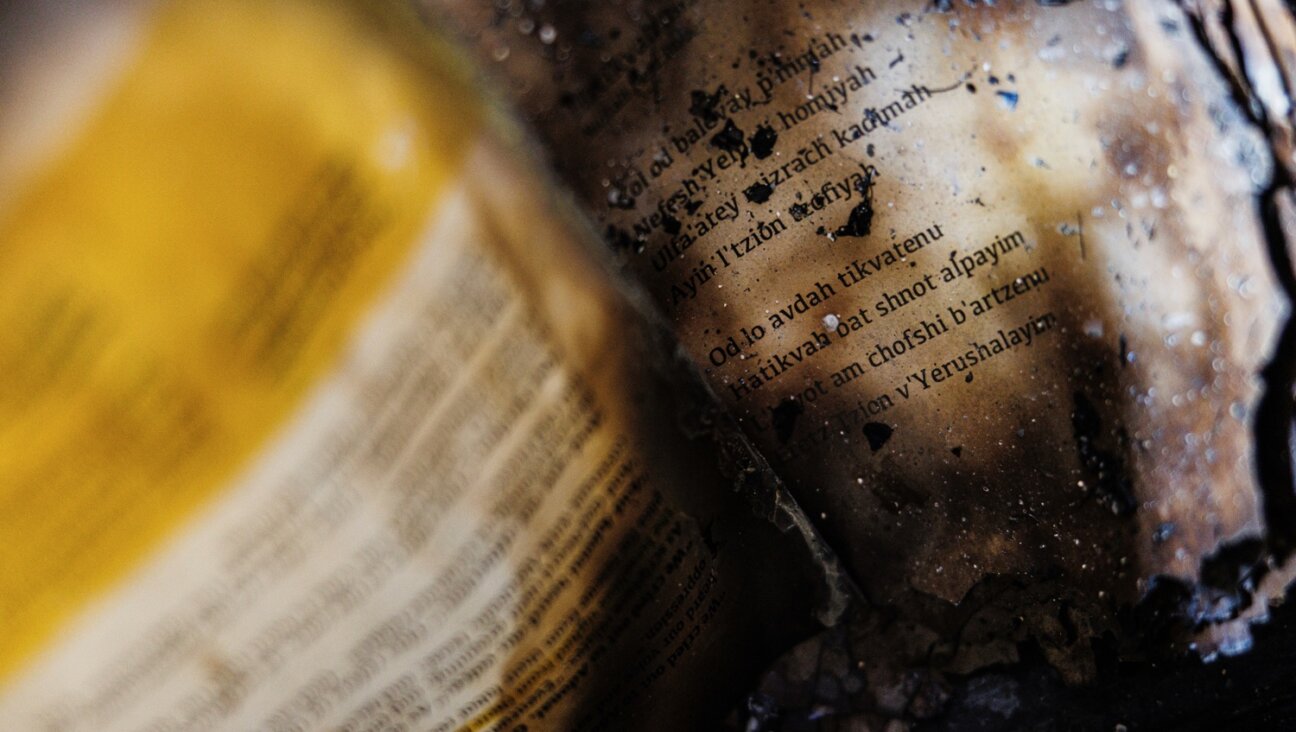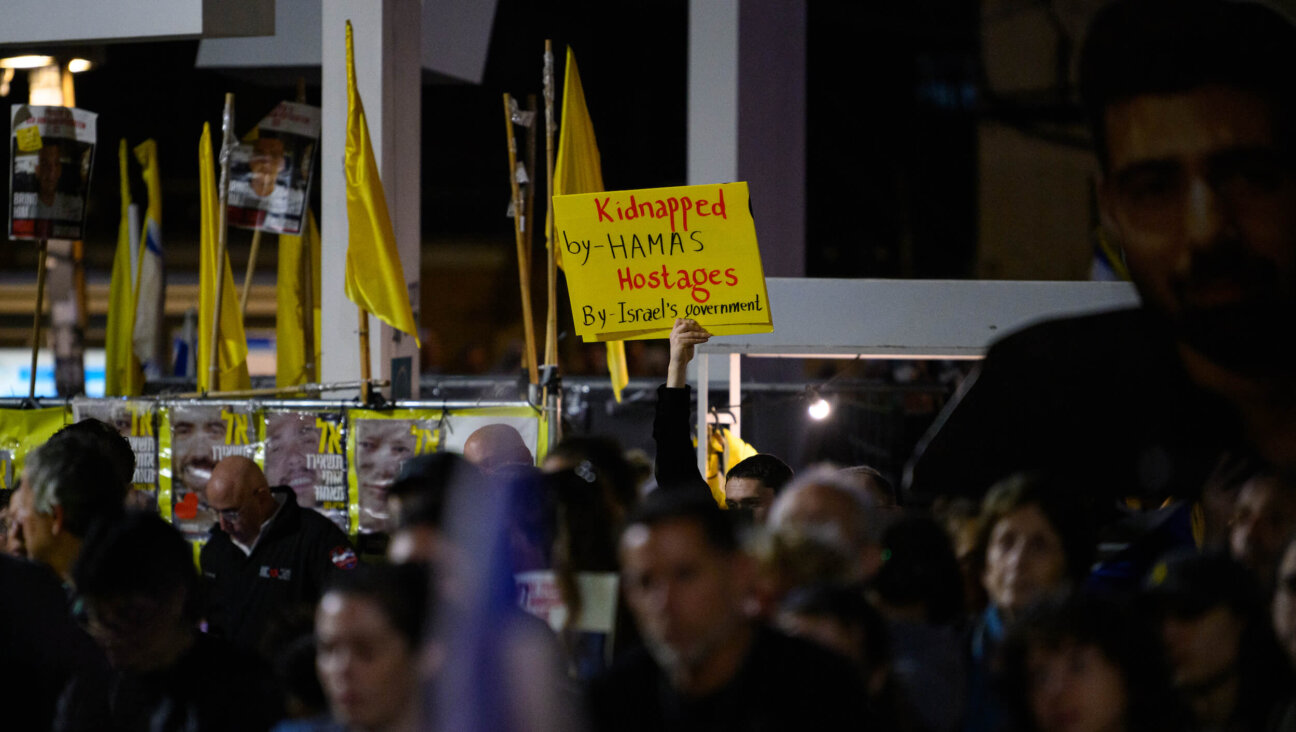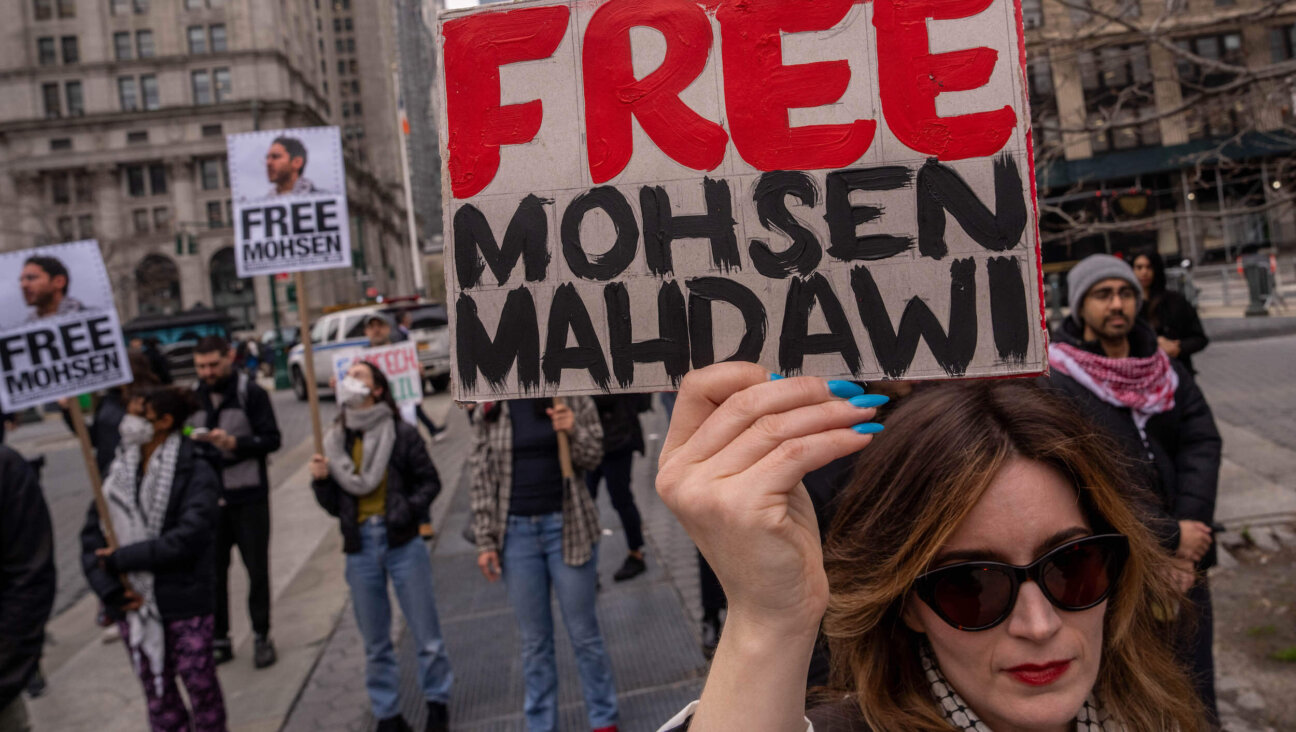Eyeless in Israel
Since the start of the current Gaza campaign, the Israeli government and army have repeatedly said that they learned many lessons from the Second Lebanon War. Ostensibly, they are referring to the tactical and political breakdown outlined in the devastating postwar report issued by the Winograd Commission. But it seems that the government also learned a powerful lesson from Hezbollah — i.e., whoever controls the media wins the war.
During its current campaign, the Israeli army has kept the Erez crossing closed to the international media, barring foreign journalists from entering Gaza to cover the story. The Foreign Press Association was forced to petition the Supreme Court, which ruled in its favor and ordered the army to allow a limited group of foreign press into Gaza. Not only did the army refuse to carry out the court’s order, but it played a ludicrous game of telling the reporters to appear at the crossing at an appointed hour, and then refusing to process their passage.
This happened three times in one week. On one occasion, the army claimed it was too busy processing 300 dual-nationality Gazans, whose exit from the besieged territory was facilitated by foreign embassies. On another occasion, the army cited undefined security reasons — even as it continued to process the passage of international NGO workers. Asked by The New York Times for an explanation, Daniel Seaman, director of the Government Press Office, responded, “Any journalist who enters Gaza becomes a fig leaf and front for the Hamas terror organization, and I see no reason why we should help that.”
Israeli journalists, for their part, have been banned from entering Gaza by their own government for more than two years, so Israeli media outlets have largely contented themselves with hiring local Palestinian stringers to file the occasional news report or human-interest story from Gaza. Since the beginning of the military campaign, Israeli television stations have been making do with the occasional 30-second clip from Al Jazeera, which is the only international television news crew in Gaza right now. For the most part, Gaza as a place inhabited by human beings has been ignored.
Israeli media outlets instead have focused on the home front. From dawn until midnight, reporters spread out over Sderot, Ashkelon, Ashdod and Beersheba to give an update every few minutes — even when there is very little to report beyond the fact that there was an alert and a rocket fell harmlessly in an open area.
For these reasons, and because domestic news broadcasts traditionally avoid showing dead bodies, Israelis do not get a full sense of the bloodshed and destruction that is taking place in Gaza. While Al Jazeera has been broadcasting horrendous images of destroyed homes and infrastructure, dead children and overflowing hospitals to an outraged Arab audience of tens of millions, Israelis see only the occasional sanitized snippet of that coverage.
Two days after the military campaign began, the Israeli financial newspaper Globes published a highly critical summary of the domestic news coverage. It described in stark terms the dead civilians, destroyed infrastructure and harsh living conditions in Gaza, pointing out that none of these images are shown on Israeli television. Instead, Israelis see “military correspondents standing against a background of smoke pillars on a distant horizon, and reporters standing on deserted streets in the southern cities.” The article’s conclusion was withering: “The Israeli media is acting as a de facto army spokesman.” As the Gaza campaign nears the two-week mark, this pattern has held true.
Israelis pride themselves on being the only democracy in the Middle East. Yet they have willingly suspended democratic principles, such as the rule of law — in the case of the Supreme Court ruling on admitting foreign reporters to Gaza — and freedom of the press. Given the limited, controlled coverage of the army’s operation in Gaza, Israelis simply do not have sufficient first-hand information, in their own language, about what is really happening there. How, then, can they judge the moral stakes of this war?
Lisa Goldman is a freelance journalist living in Tel Aviv. She blogs at lisagoldman.net.
The Forward is free to read, but it isn’t free to produce

I hope you appreciated this article. Before you go, I’d like to ask you to please support the Forward.
Now more than ever, American Jews need independent news they can trust, with reporting driven by truth, not ideology. We serve you, not any ideological agenda.
At a time when other newsrooms are closing or cutting back, the Forward has removed its paywall and invested additional resources to report on the ground from Israel and around the U.S. on the impact of the war, rising antisemitism and polarized discourse.
This is a great time to support independent Jewish journalism you rely on. Make a Passover gift today!
— Rachel Fishman Feddersen, Publisher and CEO
Most Popular
- 1

News Student protesters being deported are not ‘martyrs and heroes,’ says former antisemitism envoy
- 2

News Who is Alan Garber, the Jewish Harvard president who stood up to Trump over antisemitism?
- 3

Fast Forward Suspected arsonist intended to beat Gov. Josh Shapiro with a sledgehammer, investigators say
- 4

Opinion My Jewish moms group ousted me because I work for J Street. Is this what communal life has come to?
In Case You Missed It
-

Opinion Yes, the attack on Gov. Shapiro was antisemitic. Here’s what the left should learn from it
-

News ‘Whose seat is now empty’: Remembering Hersh Goldberg-Polin at his family’s Passover retreat
-

Fast Forward Chicago man charged with hate crime for attack of two Jewish DePaul students
-

Fast Forward In the ashes of the governor’s mansion, clues to a mystery about Josh Shapiro’s Passover Seder
-
Shop the Forward Store
100% of profits support our journalism
Republish This Story
Please read before republishing
We’re happy to make this story available to republish for free, unless it originated with JTA, Haaretz or another publication (as indicated on the article) and as long as you follow our guidelines.
You must comply with the following:
- Credit the Forward
- Retain our pixel
- Preserve our canonical link in Google search
- Add a noindex tag in Google search
See our full guidelines for more information, and this guide for detail about canonical URLs.
To republish, copy the HTML by clicking on the yellow button to the right; it includes our tracking pixel, all paragraph styles and hyperlinks, the author byline and credit to the Forward. It does not include images; to avoid copyright violations, you must add them manually, following our guidelines. Please email us at [email protected], subject line “republish,” with any questions or to let us know what stories you’re picking up.












